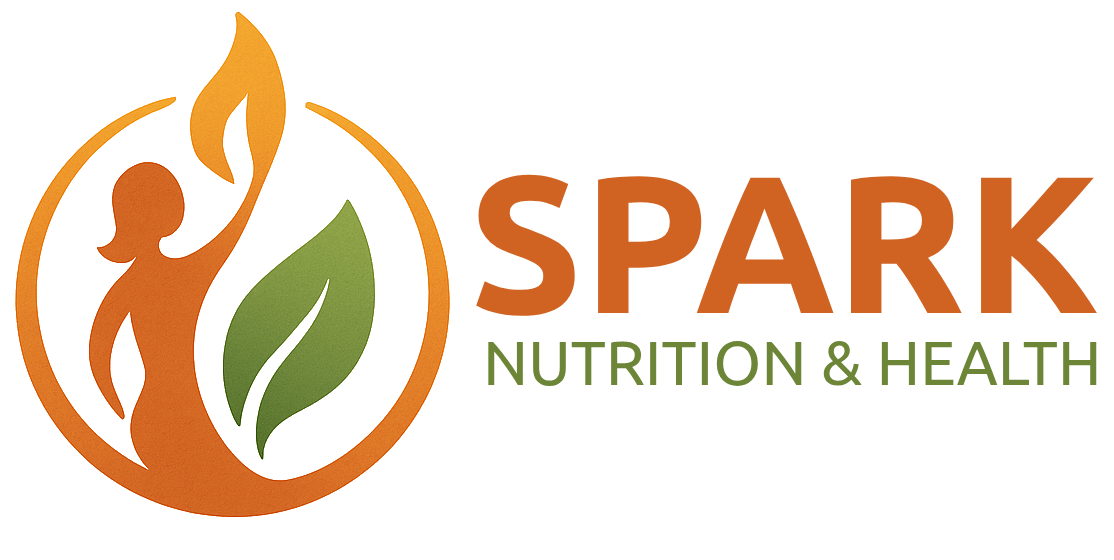In Canada, anyone can call themselves a “nutritionist,” but only those registered with a provincial regulatory body can use the title “Registered Dietitian (RD).” RDs have a university degree in nutrition, have completed supervised practical training, and must pass a national exam and maintain ongoing competency. At Spark Nutrition and Health, you’ll work with a Registered Dietitian who uses evidence-based strategies personalized to your needs.
Dietitians translate the science of nutrition into practical, sustainable strategies that work for real life. We support clients with a wide range of goals, from managing health conditions to improving energy, digestion, or body composition, without restrictive diets or fads.
We start with a 60-minute comprehensive assessment to understand your health history, lifestyle, goals, and current nutrition habits. Together, we build a realistic plan tailored to your needs, with follow-up sessions for accountability, support, and adjustments along the way.
Nope. Diet culture has done enough damage! Instead of handing you rules to follow, we’ll focus on building habits and strategies that fit your life…flexible, personalized, and sustainable.
We may use sample meal plans as inspiration or a learning tool, but our focus is helping you develop a way of eating that you can maintain long-term. That means learning to make confident food choices, not relying on rigid plans.
It depends on your goals. Many clients will have anywhere from 4 to 8 sessions to see meaningful change, while others benefit from ongoing support. We’ll talk about what makes the most sense for you after your initial session.
Some of the most common signs include irregular periods, hot flashes, sleep disturbances, mood changes, weight gain (especially around the midsection), brain fog, and fatigue. Every woman’s experience is unique, and symptoms can vary in intensity and duration.
Perimenopause can begin as early as your mid-to-late 30s or early 40s and lasts until menopause (when periods have stopped for a full year). If you’re noticing changes in your cycle, mood, or energy, paired with other symptoms, it’s worth speaking with your doctor and a dietitian for support.
Hormonal changes during perimenopause and menopause can shift how your body stores fat and uses energy. Muscle mass tends to decrease, which can result in a slower metabolism, even if your habits stay the same. That’s why it’s important to adapt your nutrition and lifestyle to your current stage of life. That’s where a dietitian can help!
Not necessarily. Cutting carbs can lead to short-term weight loss, but it’s not sustainable for most people. Instead, we focus on optimizing carb quality and portioning, pairing carbs with protein and fibre to stabilize blood sugar and support long-term success.
Most women in midlife benefit from increasing their protein intake to support muscle mass, metabolism, and appetite control. We often recommend aiming for 1.2–1.6 grams of protein per kilogram of body weight per day, distributed across meals. These recommendations are tailored to your specific needs.
Supplement needs vary, but common ones to discuss include vitamin D, calcium, magnesium, omega-3s, creatine and protein powder. It’s best to assess your current intake and symptoms with a dietitian to avoid over-supplementing or missing key nutrients.
Balanced meals with quality protein, healthy fats, and slow-digesting carbs are key. Managing stress, staying active (especially with strength training), getting good sleep, and staying hydrated also play major roles. We’ll help you build a lifestyle and eating pattern that supports both your body and brain.
